Do you find yourself struggling to fall asleep at night? Or constantly waking up at 2 am and waking up feeling groggy and drained? It’s time to start paying more attention to your sleep hygiene!
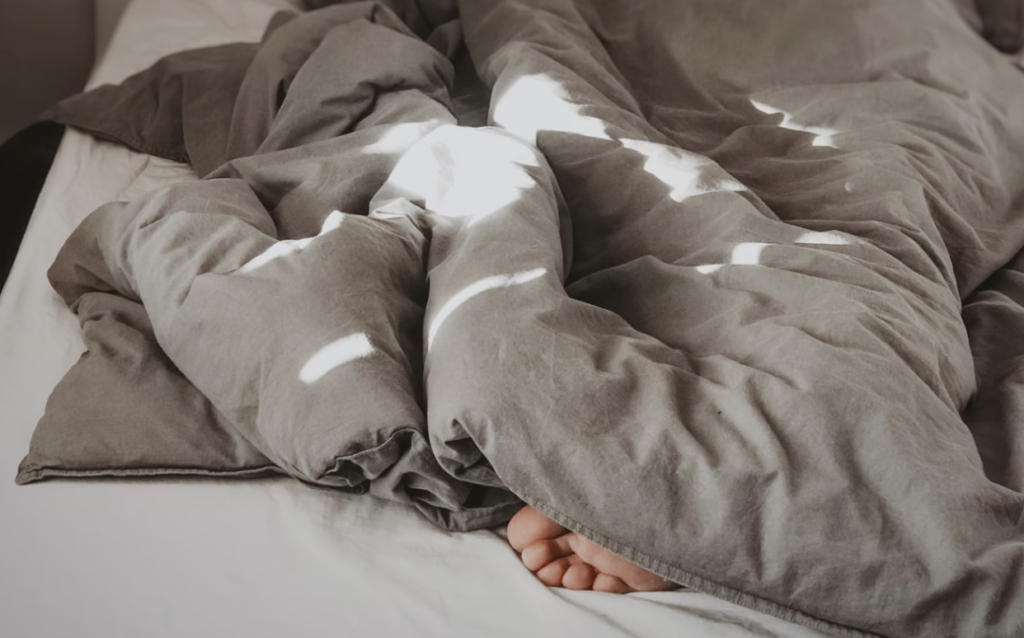
Sleep hygiene is your habitual everyday practice that impacts your sleep. Every habit a person has throughout the day can influence the number of z’s you get at night.
What you eat and drink, the amount of physical activity you do, your sleep environment, the amount of blue light exposure before bed, and your pre-bedtime routine all factor into sleep hygiene.
This article will dive deeper into why quality sleep is essential to our overall health.
Effects of Poor Sleep
Sleep hygiene can seamlessly fall out of an individual’s priorities. Life becomes busy, and individuals find it harder and harder to invest time into developing sleep habits that stick.
When sleep hygiene slips from being a priority, individuals will feel an overall slip in their overall physical and mental health.
The quantity and quality of our sleep can impact inflammatory responses within our bodies.
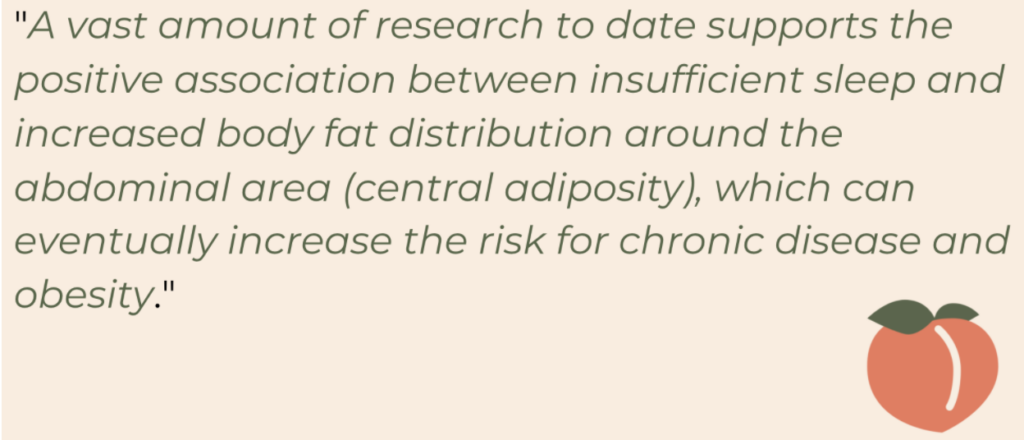
More specifically, consistent lack of sleep is considered a “stressor” to our body and spikes cortisol levels. Stress has been identified as proinflammatory and can drive increased inflammation.
A vast amount of research to date supports the positive association between insufficient sleep and increased body fat distribution around the abdominal area (central adiposity), which can eventually increase the risk for chronic disease and obesity.
Did you know poor nights of sleep can also elevate cravings for sweet and carb-dense foods?
When our bodies lack sleep, they seek energy in the only other way they know, through food. Therefore, our bodies signal that we are hungry, provoking cravings for sweet and carb-dense foods.
Inadequate sleep alters appetite regulation: the hunger hormone, ghrelin, increases, and the fullness hormone, leptin, decreases. Thus resulting in increased appetite and decreased satiety.
All these effects of lack of sleep can also hinder our body composition and health goals due to its impact on metabolic activities.
Lastly, less sleep directly impacts our moods and energy levels. That’s why you might find yourself very irritable, more anxious, short-tempered, and less productive.
Tips to Improve Your Sleep Hygiene
Our restful slumber is a critical component of a healthy lifestyle. Not to mention, you’ll wake up every morning feeling refreshed, energized, and in a more genuine mood. Last but not least, your body will thank you!
When individuals are mindful of their sleep habits, they find an increased number of nights of uninterrupted sleep. However, it may be easier said than done to develop helpful sleep strategies.
With some minor adjustments to your everyday routine, you can say goodbye to disrupted nights. Here are some simple, helpful tips to guide you to better sleep hygiene:
1. Set a Consistent Sleep Schedule to Keep Your Circadian Rhythm Synchronized
The body’s internal clock, also known as circadian rhythm or the sleep and wake cycle, relies on your daily routines to stay synchronized.
Our bodies rely on this cycle to regulate different physiological functions, such as our metabolism. This rhythm can get thrown off if there is inconsistency in your daily routine, leading to fatigue during the day or trouble sleeping at night.
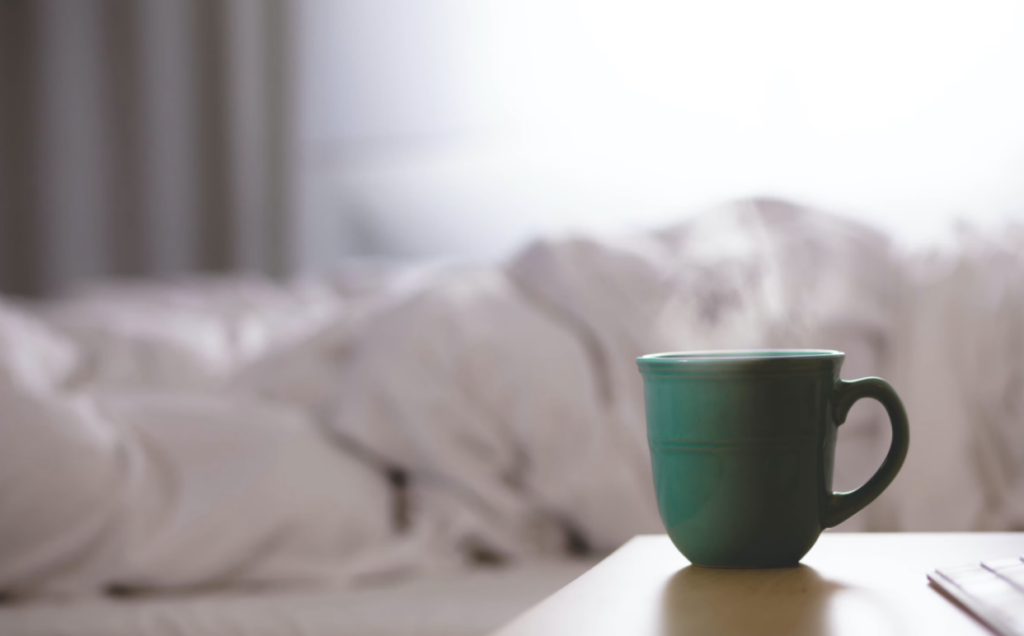
Going to sleep and waking up at the same time every day will help lock in a set routine. Your body will acknowledge and respond to this over time. You will then find yourself waking up and going to sleep around the same time every day – your body wants to work with you!
Aim to get 7 to 9 hours of sleep when planning your sleep schedule.
2. Avoid Caffeine Intake at the Evening
Caffeine remains in our system longer than we think. An hour after consuming caffeine, our blood will have the highest level of caffeine, which will stay for 6 hours. It can take a total of 10 hours for caffeine to completely clear our bloodstreams.
While tolerance varies from person to person, the recommended suggestion is to steer away from caffeine intake after 2 pm or anywhere from 4 to 6 hours before you plan to go to bed.
3. Follow a Pre-Bedtime Routine
Prioritizing a relaxing nightly routine will help signal your body that you are transitioning to getting ready for bed. It also allows you to have a little time to wind down and destress from your day.
Develop a bedtime routine that fits into your lifestyle. Ideally, set aside 30 to 60 minutes to fully optimize your practice.
You can individualize the routine below to help you unwind and destress:
- Dim down your lights, reduce the amount of blue light (from screens)
- Take a warm bath or shower or do your nightly hygiene routine
- Drink your favorite caffeine-free herbal tea
- Practice meditation, deep breathing, or light stretching exercises
- Read a book or listen to soothing music
- Unplug yourself from electronics (Practice leaving your phone out of the bedroom)
4. Make Your Bedroom into a Good Sleeping Environment
Let’s be real here, who can sleep with bright lights, dogs barking, busy cars, or uncomfortable temperatures? Your bedroom environment impacts your slumber way more than you may think.
A key component of good sleep hygiene is creating a restful environment that promotes peace, tranquility, and comfort.
Here are some helpful ways to amp up your bedroom environment for better sleep:
- Try using earplugs or a white noise machine
- Create your ideal sleeping temperature (For most, this is 65 degrees Fahrenheit)
- Make sure you have a comfortable mattress, pillows, and bedding
- Use a sleeping mask or buy thick curtains if light exposure is an issue
5. Identify and Manage Stressors
Sometimes life throws unexpected problems at us. However, dealing with these stressors and managing them is essential for your overall quality of life and sleep! As discussed above, prioritizing relaxation promotes restful sleep.
If you find yourself dealing with a stressful situation before bed, try writing your thoughts out or taking deep breaths.
For more helpful ways to cope with stress, read Decrease Stress, Release Happy Hormones.
6. Exercise
We know that exercise is an essential component of a healthy lifestyle, but did you know it can help promote good sleep too?
Several studies have found physical activity to be an effective sleeping aid that improves the overall quality of sleep. When you exercise, your “sleep drive” increases; thus, your body tends to be ready to sleep and recover at night.
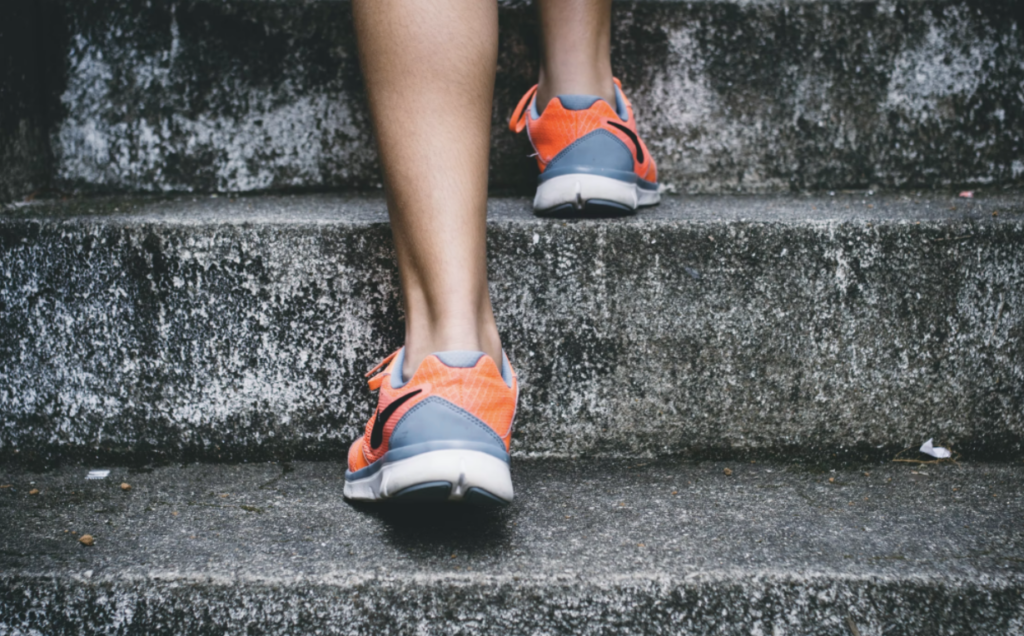
The release of endorphins during exercise can make you feel energized and awake; therefore, try to exercise no later than 3 hours before sleep to give enough time for them to dial down.
Summing Sleep Up
Always remember, the main components of a healthy lifestyle are; balanced, nourishing meals, exercise, stress management, and SLEEP!
Simply shifting some of your habits and practicing some of the tips discussed above will improve sleep hygiene, and significantly improve your rest at night and increase your overall health.
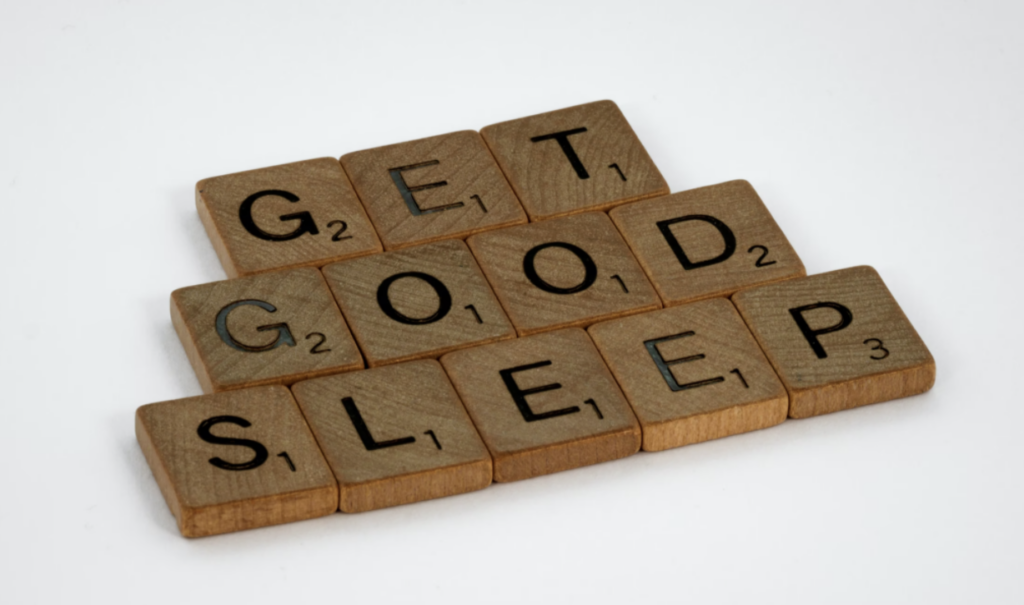
The founder at Wellpower Method, dietitian and nutrition coach Gabrielle helps you turn habits into a healthy, impactful routine that will turn your life around.
Unlike other nutrition coaches, Gabrielle focuses on all aspects of your health to reach your goals; one major component is sleep.
Ready to take control over your life and habits? Schedule a 15-minute discovery call with her today and understand why so many are turning to the Wellpower Method to optimize their lifestyles.



